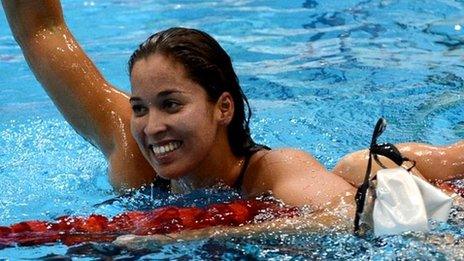British swimming at London 2012 - Did 'home advantage' backfire?
- Published
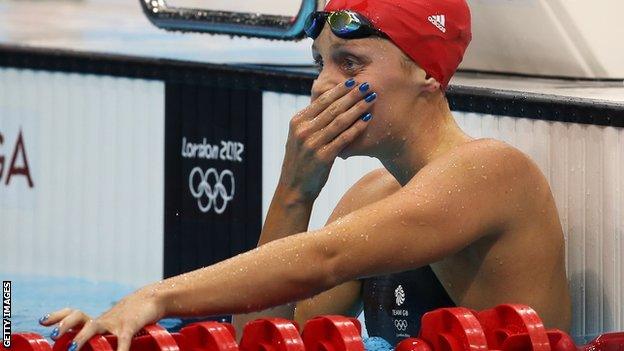
Despite competing in three individual events, Great Britain's Fran Halsall finished London 2012 without an Olympic medal
It was dubbed "Super Saturday" after Great Britain enjoyed their most successful day at the Olympics for more than 100 years.
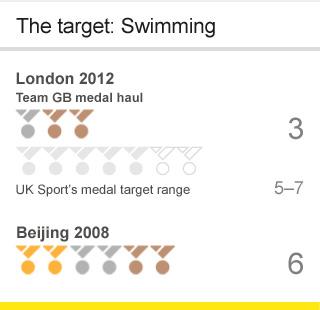
But there was one sport notably absent from the party - swimming.
When their competition began a week earlier the British team were aiming to beat the three medals (two golds and a bronze) that they achieved in the pool in Beijing four years ago.
This was backed by strong performances at last year's world championships, but Hannah Miley, Ellen Gandy, Fran Halsall and double world open water champion Keri-Anne Payne all failed to deliver on their pre-Games podium potential.
Michael Jamieson claimed a stunning silver in the 200m breaststroke and Rebecca Adlington delivered two bronze medals, but the British camp had little else to celebrate.
BBC Sport assesses the performances of the British team in London.
What went wrong?
When a swimmer as experienced as Adlington admits that at times she found the passionate home support "overwhelming" it's easy to imagine that other British swimmers suffered anxieties.
"With home advantage we're seeing people running, jumping, shooting out of their skins - if we're finding it a problem then the management need to look at that," said Athens bronze medallist and BBC analyst Steve Parry.
Rebecca Adlington beaten by US teenager
But British Swimming performance director Michael Scott said it was not something for which they could easily prepare.
"There's not a mechanism, they have never stood in front of a crowd like this before," said Scott.
"We can do all the training and all of the preparation, but the first time they get to experience it is when they walk out here.
"Sometimes it's broader than the crowd, it's the public expectation, but our swimmers need to learn how to cope with that."
Although there were near-misses - Halsall was denied 50m bronze by 0.08 seconds, while Elizabeth Simmonds and the men's 4x100m relay team both came fourth - too many swimmers failed to achieve either their personal best or even their fastest time this season.
"I'm not here to make excuses, we had hoped to get more," Scott told BBC Sport.
"We have to understand the reasons why we didn't convert final positions and we need to address them going forward."
What are the implications?
Put simply, medals means money and without hitting their minimum target of five, British Swimming puts itself in significant danger of a cut from the £25.1m they have received over the last four years.
The £264m, external UK Sport divides between all Olympic sports is expected to remain the same for the Rio 2016 campaign, but with the likes of judo and canoeing performing well in London, they can expect a larger slice of the funding pie.
Parry admits he is concerned.
"UK Sport operate a very objective system based on your targeted medals and how many you achieve.
"The fact of the matter is that there are loads of other sports that are doing extremely well and there's only one pot of a certain size."
Since Beijing, British Swimming has invested heavily in five International Training Centres [ITCs], external and currently supports 38 swimmers in their elite programme. That number could be cut if funding was reduced.
"It's out of my control now," admitted Scott.
Any cause for optimism?
"We're British, and British people always come back stronger and that's what we're going to do," said Halsall.
Gyurta
Great Britain can draw some relief from achieving a record number of finalists in London, which was the third highest behind the United States and Australia.
"I think it is a bright future looking forward, not only in terms of the number of finalists here but also the strong junior programme that we have in place and their performances at the European junior championships this year."
BBC analyst Sharron Davies, who won silver at the 1980 Olympics, feels there is strong potential in the British team.
"There were a few youngsters who will have gained fantastic experience, like Siobhan-Marie O'Connor and a new superstar in Michael [Jamieson] coming through.
"Becky [Adlington] has had four Olympic finals and she's had four medals, how many people can say that?
"They are constantly standing up and winning medals these days and it may not have been perfect here [in London], but that doesn't mean they can't get it right in four years' time."
Parry added: "It's been an unbelievable Olympic cycle.
"Going from our best ever world championships in 2009 to the [2010] Commonwealth Games, Europeans and more success at the Worlds last year - they've just missed a few finishes here in London.
"I think if you stick with swimming, you're going to get the returns."
- Published4 August 2012
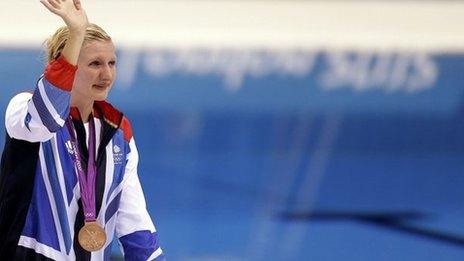
- Published1 August 2012
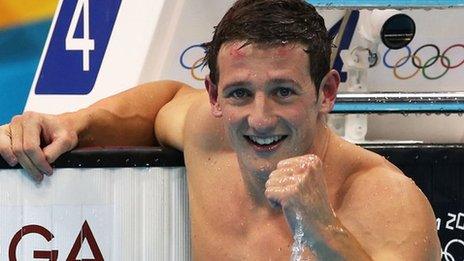
- Published31 July 2012
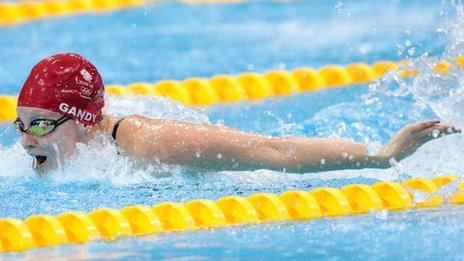
- Published28 July 2012
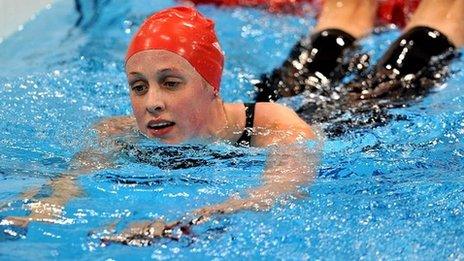
- Published4 August 2012
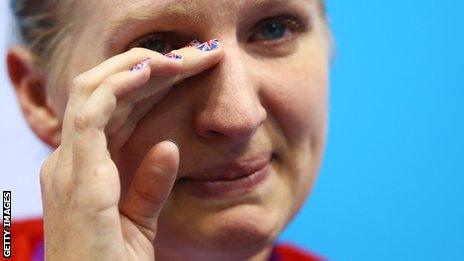
- Published30 July 2012
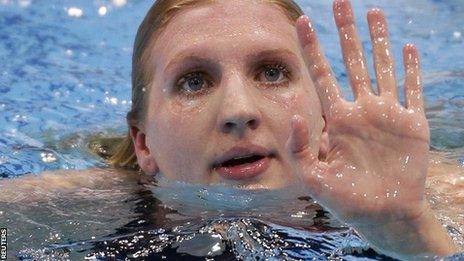
- Published4 August 2012
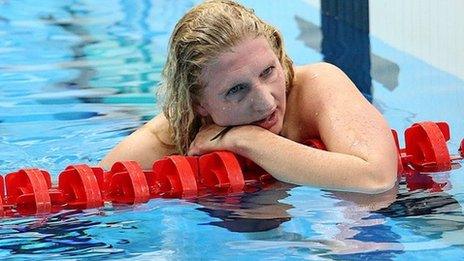
- Published4 August 2012
